Conversaciones en Inglés
Nivel Avanzado
"Nervous About An Interview"
Escucha el audio y lee el texto para aprender el vocabulario y frases en la conversación. Haz clic aquí para ver más consejos para estudiar.
Audio – Versión Normal
Audio – Versión Lenta
A: Thanks for meeting me for lunch on such short notice.
B: No worries. I was already in the area. So what’s up?
A: Nothin’. Well, actually there is. It’s just a habit to say “nothing.” I was kind of nervous so I thought it’d be good to talk to you. You always seem to brighten my day.
B: Oh, thanks! So what’s going on?
A: Well, you know how I’ve been studying Japanese and business, right?
B: Yeah…
A: Well, I’ve finally finished my business degree…
B: Hey, that’s awesome. Congrats.
A: Thanks. Anyway, I have 4 interviews this week with companies that predominately do business with Japan.
B: Whoa, that’s a lot of interviews for one week. Don’t bite off more than you can chew.
A: That’s just the tip of the iceberg. All my interviews will be in Japanese!
B: What? That’s gotta be tough. But you’ve been studying Japanese for a while, so you should do fine.
A: That’s true, but I haven’t had many opportunities to practice it with native Japanese speakers. So I’m nervous.
B: Don’t worry about it. The interviewers know it’s not your native language. They won’t expect you to speak it perfectly. I’m sure they know your Japanese will get way better after you get hired and are practicing it all the time at work. A: You’re right. Plus, I bet most of the other candidates learned Japanese as their second language too. So we’re all in the same boat.
B: That’s true. You’ve been studying a lot of idiomatic expressions too, right?
A: Yeah.
B: Maybe you could score some brownie points by using some of them in the interview. Just make sure the expressions are appropriate though. You don’t want to cuss or anything in the interview.
A: Hmm… good idea. I’ve been studying the expressions a lot lately.
B: Is your resumé in English or Japanese?
A: They didn’t specify which language, so I made one of both. Better safe than sorry.
B: Good idea. Also, remember you made good grades in school. They care about that too, not just your level of Japanese. Any company would be luck to have you. You bring a lot to the table.
A: Thanks for your support. I feel a lot better now. Well, I need to get going.
B: Yeah, me too. Feel free to call me anytime and bounce some ideas off me if you want.
A: Ok. Maybe I will.
Descarga todos los diálogos, phrasal verbs, verbos irregulares y cognados hoy mismo por comprar el curso completo
Traducción y Comentario
A: Thanks for meeting me for lunch on such short notice.
Gracias por venir a almorzar sin haberte avisado antes.
B: No worries. I was already in the area. So what’s up?
No hay problema. Estaba en la zona. ¿Qué pasó?
A: Nothin’. Well, actually there is. It’s just a habit to say “nothing.” I was kind of nervous so I thought it’d be good to talk to you. You always seem to brighten my day.
Nada. Bueno, en realidad sí. Sólo es un costumbre decir “nada.” Estaba un poco nerviosa entonces pensé que sería bueno hablar contigo. Parece que siempre me mejoras el día.
B: Oh, thanks! So what’s going on?
Oh, ¡gracias! ¿Qué está pasando?
A: Well, you know how I’ve been studying Japanese and business, right?
Bueno, sabes cómo he estado estudiando japonés y negocios, verdad?
B: Yeah…
Sí…
A: Well, I’ve finally finished my business degree…
Bueno, finalmente he terminado mi título de Negocios…
B: Hey, that’s awesome. Congrats.
Oye, eso es fantástico. Felicitaciones.
A: Thanks. Anyway, I have 4 interviews this week with companies that predominately do business with Japan.
Gracias. De todas maneras, tengo 4 entrevistas esta semana con compañías que principalmente hacen negocios con Japón.
B: Whoa, that’s a lot of interviews for one week. Don’t bite off more than you can chew.
Wow, son muchas entrevistas para una semana. No muerdas más que lo que puedes masticar.
A: That’s just the tip of the iceberg. All my interviews will be in Japanese!
Eso es sólo la punta del iceberg. ¡Todas mis entrevistas estarán en japonés!
B: What? That’s gotta be tough. But you’ve been studying Japanese for a while, so you should do fine.
¿Qué? Eso debe ser difícil. Pero has estado estudiando japonés por un tiempo, de modo que debería irte bien.
A: That’s true, but I haven’t had many opportunities to practice it with native Japanese speakers. So I’m nervous.
Es verdad, pero no he tenido muchas oportunidades de practicarlo con hablantes nativos de japonés. Así es que estoy nerviosa.
B: Don’t worry about it. The interviewers know it’s not your native language. They won’t expect you to speak it perfectly. I’m sure they know your Japanese will get way better after you get hired and are practicing it all the time at work.
No te preocupes. Las entrevistadores saben que no es tu lengua madre. No van a esperar que lo hables perfectamente. Estoy segura que saben que su japonés mejorará después de que te contraten y estés practicándolo todo el tiempo en el trabajo.
A: You’re right. Plus, I bet most of the other candidates learned Japanese as their second language too. So we’re all in the same boat.
Tienes razón. Además, apuesto que la mayor parte de los candidatos aprendieron japonés como su segunda lengua también. Entonces todos estamos en la misma situación.
B: That’s true. You’ve been studying a lot of idiomatic expressions too, right?
Eso es cierto. Has estado estudiando muchas expresiones idiomáticas también, ¿verdad?
A: Yeah.
Sí.
B: Maybe you could score some brownie points by using some of them in the interview. Just make sure the expressions are appropriate though. You don’t want to cuss or anything in the interview.
Tal vez podrías tener puntos ganados por usar unas de esas en la entrevista. Sólo asegúrate que las expresiones son apropiadas. No querrás decir unas palabrotas o algo en la entrevista.
A: Hmm… good idea. I’ve been studying the expressions a lot lately.
Hmm… buena idea. He estado estudiando las expresiones mucho últimamente.
B: Is your resumé in English or Japanese?
¿Tu currículum está en inglés o japonés?
A: They didn’t specify which language, so I made one of both. Better safe than sorry.
No especificaron cual idioma, entonces hice uno de cada uno. Mejor estar seguros y no lamentarse.
B: Good idea. Also, remember you made good grades in school. They care about that too, not just your level of Japanese. Any company would be luck to have you. You bring a lot to the table.
Buena idea. También, acuérdate que obtuviste buenas calificaciones en la universidad. También eso les importa, no sólo tu nivel de japonés. Cualquier compañía tendría suerte de tenerte. Eres capaz de ayudar con muchas cosas.
A: Thanks for your support. I feel a lot better now. Well, I need to get going.
Gracias por tu apoyo. Ya me siento mucho mejor. Bueno, necesito irme.
B: Yeah, me too. Feel free to call me anytime and bounce some ideas off me if you want.
Sí, yo también. Siéntete libre de llamarme en cualquier momento y contarme cosas si quieres.
A: Ok. Maybe I will.
Ok. A lo mejor lo haré.
Expresiones idiomáticas de inglés en la conversación:
-(On such) short notice = hacer algo sin avisar con anticipación
-No worries = no hay problema, no te preocupes
-To brighten someone’s day = hacerle sentir mejor
-Don’t bite off more than you can chew = no trates de hacer más de lo que puedes
-The tip of the iceberg = el principio, la punta del iceberg
-We’re all in the same boat = todos somos en la misma situación
-Brownie points = puntos ganados. Son algo que obtienes si haces cosas especiales que no son necesarias.
-Better safe than sorry = mejor estar a salvo que arrepentirse. Mejor estar seguros y no lamentarse.
-To bring a lot to the table = tener muchas capacidades para ayudar mucho
-To get going = irse
-Feel free… = siéntete libre…
¿Necesitas practicar tu inglés?
Puees practicar tu inglés en casa con un profe americano a través de Skype


